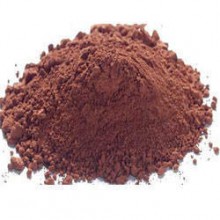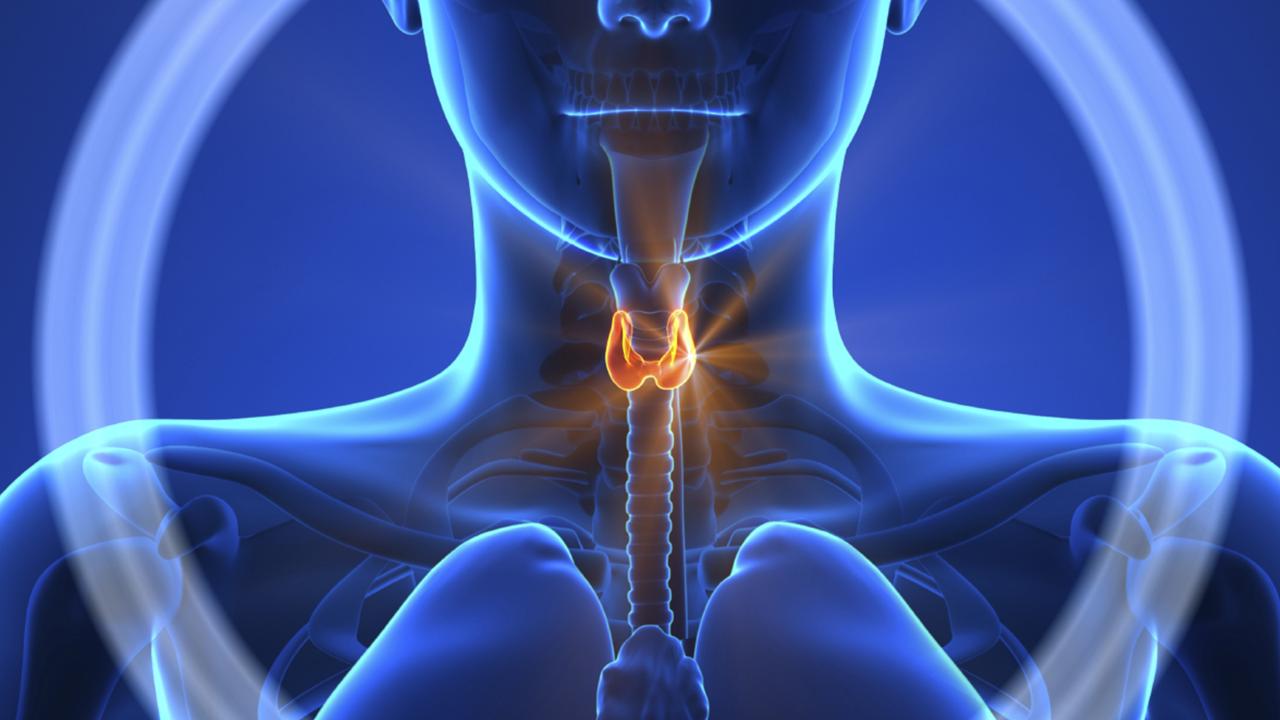
“Every Cell in the Body has receptors for thyroid hormone”
Did you know that:
- In the US alone, it’s estimated that 50 million people have an endocrine autoimmune disease according to the American Autoimmune Related Disease Association.
- Endocrine autoimmune diseases have been cited in the top ten leading causes of all deaths among U.S. women aged 65 and younger.
- Moreover, these diseases represent the fourth-largest cause of disability among women in the United States.
- An American Autoimmune Related Diseases Association (AARDA) survey has found that more than 45 percent of patients with endocrine autoimmune diseases have been labeled hypochondriacs in the earliest stages of their illnesses
Being told ‘it is all in your head’ and feeling like you are not living up to your potential can wreak havoc on your sense of well-being and many clients come to me feeling depressed and hopeless because they know something is wrong – yet no one believes them.
To manage autoimmune thyroid disease or any autoimmune condition, it’s imperative to get to the root issue – an overactive, hypervigilant immune system- not simply suppress symptoms with medication. I’m not against thyroid hormone replacement, but it’s often a faulty strategy. The obvious shortcomings of just medicating symptoms are that it doesn’t address the underlying cause of the problem which is the immune system attacking the thyroid gland. If the underlying cause isn’t addressed, the treatment is not going to work very well or for very long.
It’s a bit like being in a leaky boat – you can keep bailing out the water – but if you don’t plug the leak – the boat will eventually sink!
When you consider that every cell in the body has receptors for thyroid hormone and that the thyroid turns on the genes that keep cells doing their job, it makes it easier to understand how a nutrient-deficient diet can interrupt cellular communication. So whether you are on thyroid medication or not – addressing your diet and lifestyle is critical to getting back on track – feeling like yourself again, regaining your vitality, and firing up your metabolism.
I often get asked about thyroid supplements and while I often caution clients against the slippery slope of over-supplementation, supplements can when taken correctly and in accordance with what is right for you, be instrumental in healing. I frequently recommend many of the herbs below but I do not recommend all of these supplements for all Hashimoto’s sufferers.
5 Herbs for Thyroid Wellness

Ashwagandha – My Favorite Adaptogen
An adaptogen is a substance that can raise the body’s resilience to various types of physical and emotional stress. We know that stress and resulting adrenal dysfunction are common triggers for Hashimoto’s. Adaptogens are thought to relieve adrenal dysfunction.
Ashwagandha is a popular adaptogenic herb and is viewed as one of the most important herbs of Ayurveda, with many studies showing it to have adaptogenic and anti-stress properties, along with being neuroprotective, anti-inflammatory, anti-arthritic, and analgesic. The reason ashwagandha is my favorite adaptogenic herb is that research has shown it to be beneficial for normalizing thyroid hormone levels. One small study showed that after 8 weeks of treatment, ashwagandha improved serum TSH, T3, and T4 levels, normalizing serum levels.
Another study focused on mood disorders found that along with improving mood, ashwagandha could be an effective treatment for subclinical hypothyroidism, as it elevated T4 levels while providing neuroprotective, anti-inflammatory, antioxidant, and antidepressant properties.
Research has also shown ashwagandha to reduce anxiety and stress, enhance the quality of sleep, as well as help women with sexual dysfunction.
Precautions when taking ashwagandha:
Ashwagandha is not to be taken by pregnant women. It may be contraindicated in the small percentage of individuals with allergic reactions to plants in the nightshade family (tomatoes, white potatoes, eggplant, bell peppers, cayenne pepper, etc.).
Ashwagandha is contraindicated for those taking immunosuppressant medications and may have an additive effect when combined with sedatives or thyroid medications. Always consult with your physician prior to taking any new prescription medications or herbal supplements.
Tulsi: (Holy Basil)
 Tulsi, also known as Ocimum sanctum, or holy basil, has been used medicinally for at least a few thousand years. Due to its reputation of improving a wide spectrum of ailments, conditions, and symptoms, tulsi is also nicknamed the “Queen of Herbs”. Tulsi is commonly used as a natural antioxidant, antimicrobial, anti-inflammatory, and adaptogen. Adaptogens such as ashwagandha and tulsi help reduce the biochemical developments of stress by balancing cortisol levels, according to “Natural Standard Herb & Supplement Reference: Evidence-based Clinical Reviews.”
Tulsi, also known as Ocimum sanctum, or holy basil, has been used medicinally for at least a few thousand years. Due to its reputation of improving a wide spectrum of ailments, conditions, and symptoms, tulsi is also nicknamed the “Queen of Herbs”. Tulsi is commonly used as a natural antioxidant, antimicrobial, anti-inflammatory, and adaptogen. Adaptogens such as ashwagandha and tulsi help reduce the biochemical developments of stress by balancing cortisol levels, according to “Natural Standard Herb & Supplement Reference: Evidence-based Clinical Reviews.”
Specifically, too much cortisol affects the thyroid gland, ovaries, and pancreas, so tulsi is able to impact the functioning of these glands. For example, too much cortisol can cause an imbalance of insulin secretion from the pancreas, which can lead to hypoglycemia or hyperglycemia.
However, tulsi can help balance blood glucose levels indirectly by regulating cortisol secretion. Furthermore, tulsi may impact the secretion of neurotransmitters in the brain, such as serotonin and dopamine, which help regulate mood and mental well-being.
Precautions when taking tulsi:
Tulsi can interact with blood thinners (coumadin/warfarin) or other medications that slow blood clotting such as NSAIDs. Tulsi reportedly can interact with drugs used during surgery & cause bleeding complications. Always consult with your physician prior to taking any new prescription medications or herbal supplements.
 Kanchnar Guggulu:
Kanchnar Guggulu:
Kanchar Guggul is a type of Guggulu which are resins produced by the guggul tree. It possesses a host of medicinal properties that work to regulate the thyroid gland.
Kanchnar guggul is a polyherbal Ayurvedic formulation. It is one of the best Ayurvedic medicines for treating thyroid disorders, glandular swelling, lymph nodes swellings, uterine polyps, and other abnormal growths in the body. It is hot in potency and balances Vata, Pitta, and Kapha.
Guggul works on all systems of the body. It has antiseptic, pain-relieving, spasm relieving, expectorant, and nervine properties. It is especially recommended in diseases that require cleansing, detoxification, reduction of swelling, pain-relieving, and regeneration because of its anti-inflammatory, strong purifying, and rejuvenating properties.
Guggul is also useful in the prevention and cure of acne and skin inflammation. It contains guggulsterone, which aids in shedding excess body weight and regulates the functioning of the thyroid gland.
Precautions when taking Kanchnar Guggulu:
This product is only for people above 12 years of age. Not to be used in pregnancy. Always consult with your physician prior to taking any new prescription medications or herbal supplements.
Turmeric:
I love the concept of using food as medicine, or as I like to call it, food pharmacology, to heal the body and incorporate the healing properties of food into our everyday lives.
It seems that Turmeric powder is the solution to almost every health complication of the 21st Century. It has been touted as the spice that can save humanity from the clutches of all diseases.
And indeed it is an Ayurveda herb that has crossed into the mainstream supplement business. We find it at our local pharmacy, grocery store, and natural health food store. We can buy it as a powder, drink, in capsules, in tablets, as candy, and even flavored in our morning cereal. Despite its fad-like popularity Turmeric can be helpful in reducing whole-body inflammation, healing the gut, as well as detoxifying from heavy metals, in those with autoimmunity and Hashimoto’s.
Turmeric contains curcumin and other polyphenolic compounds that make it a potent antioxidant. Curcumin fights against toxic free radicals and prevents oxidative stress upon the thyroid gland. Curcumin helps to cure inflammation, which is necessary for preventing the immune system from attacking the thyroid gland.
Precautions when taking Turmeric:
While most people can safely use turmeric/curcumin, people using blood thinners should avoid curcumin, as it can magnify the effects of anti-clotting medications.
Not all turmeric supplements are pure and may contain fillers, including wheat, barley, or rye flour — sources of gluten that can be particularly harmful to those with Hashimoto’s.
Some turmeric powders have also been found to contain high levels of lead and a food colorant called metanil yellow that may cause cancer and neurological damage when consumed in large quantities. Therefore, finding a reputable source of turmeric is crucial!

Aloe Vera
Aloe Vera plants are wonderful at detoxifying and I often suggest to clients that they keep an aloe vera plant in their home. Traditionally, the plant has been used as a great household remedy to treat wounds, soothe itching, and help reduce tissue scarring.
What is not so obvious is that the aloe plant is loaded with nutrients (including thyroid-supportive selenium, zinc, and magnesium), and contains the amino acid tyrosine (a precursor for thyroxine).
Aloe vera is antiparasitic, anti-inflammatory, and is used to address a variety of Hashimoto’s triggers such as blood sugar imbalance, gut issues, viruses (herpes viruses as well as the Epstein-Barr Virus), and infections. Aloe Vera also helped with gut issues such as acid reflux, and constipation.
A study in the Journal of Clinical and Translational Endocrinology found that Aloe Vera juice was effective in reducing inflammation in Hashimoto’s. The participants included in the study all had hypothyroidism caused by the presence of an autoimmune disease.
A 50ml daily concentration of Aloe Vera juice was provided to each of the participants who were part of the study. All of the women who participated had a significant reduction in autoimmune antibodies associated with the presence of an autoimmune thyroiditis condition.
Precautions when taking Aloe Vera:
As a topical treatment, Aloe Vera is considered very safe. The majority of people who do decide to use Aloe gel to treat wounds on their skin would not experience adverse events. The gel would assist in speeding up the recovery process of the wound.
Aloe extracts are not advised for women who are pregnant. Breastfeeding women should also be cautious about using products that contain Aloe that is consumed orally. People with diabetes need to be careful, especially if they are already using medication to lower their blood glucose levels.
This is because Aloe Vera has been shown to reduce blood sugar. Thus, glucose levels may become dangerously low when the two are combined.
There’s no one size fits all protocol for hypothyroidism and addressing the condition in an integrative manner will make all the difference in your health and wellbeing. If you would like to talk with me about your thyroid health challenges. Sign up for a complimentary consultation with me. Just click on the link to my online calendar to find a good time that works for you.
In health,





